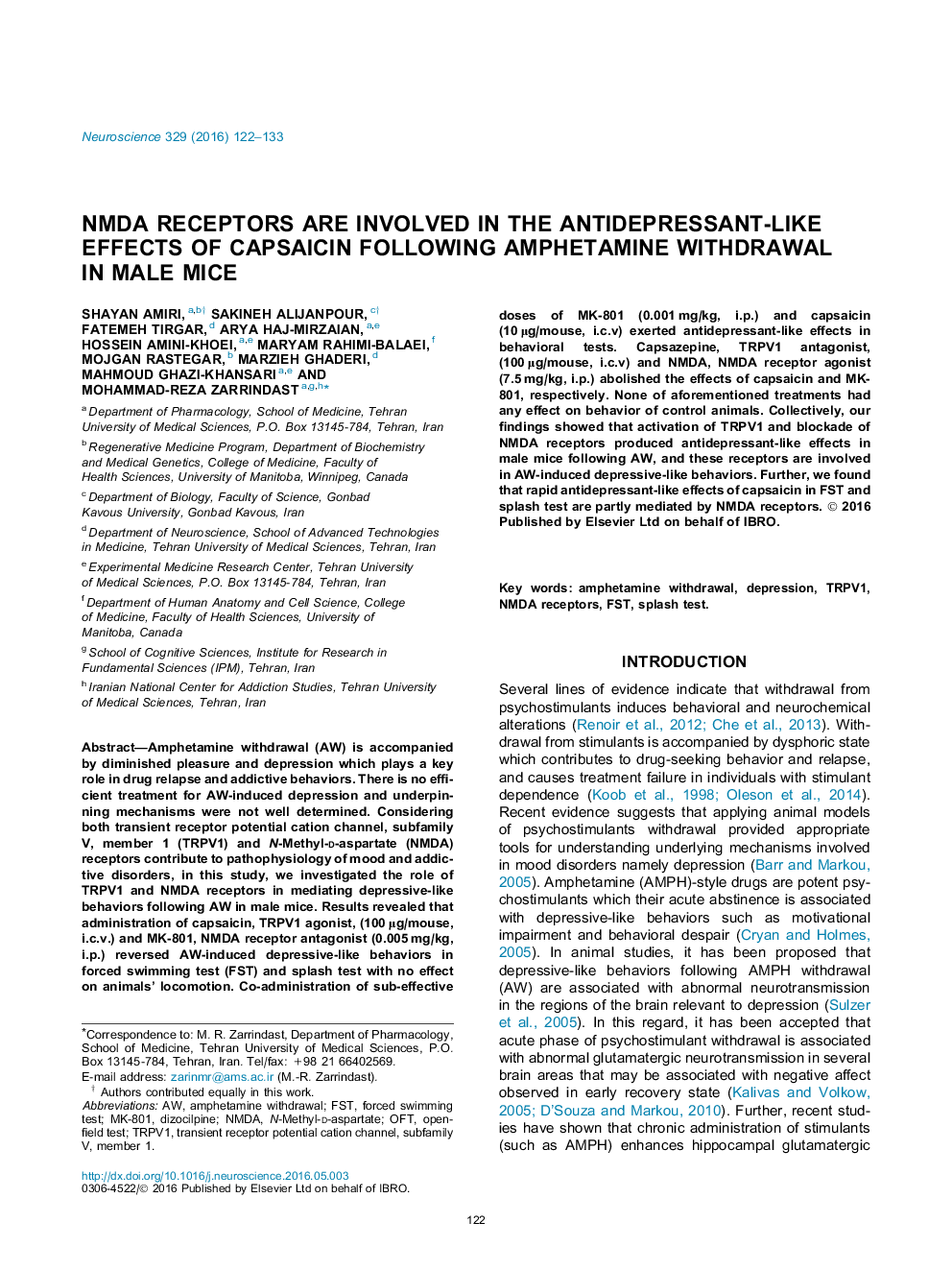| کد مقاله | کد نشریه | سال انتشار | مقاله انگلیسی | نسخه تمام متن |
|---|---|---|---|---|
| 6271014 | 1614747 | 2016 | 12 صفحه PDF | دانلود رایگان |

- AW induced depressive-like behaviors in male adult mice.
- Activation of TRPV1 by capsaicin provoked antidepressant-like effects in AW mice.
- NMDA receptor blockade by MK-801 attenuated depressive-like behaviors in AW mice.
- NMDA receptors play a role in antidepressant-like effects of capsaicin in AW mice.
Amphetamine withdrawal (AW) is accompanied by diminished pleasure and depression which plays a key role in drug relapse and addictive behaviors. There is no efficient treatment for AW-induced depression and underpinning mechanisms were not well determined. Considering both transient receptor potential cation channel, subfamily V, member 1 (TRPV1) and N-Methyl-d-aspartate (NMDA) receptors contribute to pathophysiology of mood and addictive disorders, in this study, we investigated the role of TRPV1 and NMDA receptors in mediating depressive-like behaviors following AW in male mice. Results revealed that administration of capsaicin, TRPV1 agonist, (100 μg/mouse, i.c.v.) and MK-801, NMDA receptor antagonist (0.005 mg/kg, i.p.) reversed AW-induced depressive-like behaviors in forced swimming test (FST) and splash test with no effect on animals' locomotion. Co-administration of sub-effective doses of MK-801 (0.001 mg/kg, i.p.) and capsaicin (10 μg/mouse, i.c.v) exerted antidepressant-like effects in behavioral tests. Capsazepine, TRPV1 antagonist, (100 μg/mouse, i.c.v) and NMDA, NMDA receptor agonist (7.5 mg/kg, i.p.) abolished the effects of capsaicin and MK-801, respectively. None of aforementioned treatments had any effect on behavior of control animals. Collectively, our findings showed that activation of TRPV1 and blockade of NMDA receptors produced antidepressant-like effects in male mice following AW, and these receptors are involved in AW-induced depressive-like behaviors. Further, we found that rapid antidepressant-like effects of capsaicin in FST and splash test are partly mediated by NMDA receptors.
Journal: Neuroscience - Volume 329, 4 August 2016, Pages 122-133